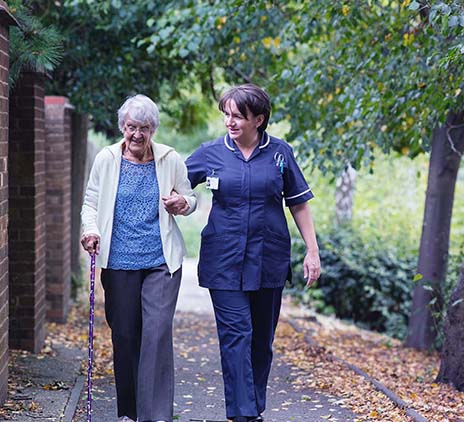- Market services
-
Compliance audits & reviews
Our audit team undertakes the complete range of audits required of Australian accounting laws to help you to help you meet obligations or fulfil best practice procedures.
-
Audit quality
We are fiercely dedicated to quality, use proven and globally tested audit methodologies, and invest in technology and innovation.
-
Financial reporting advisory
Our financial reporting advisory team helps you understand changes in accounting standards, develop strategies and communicate with your stakeholders.
-
Audit advisory
Grant Thornton’s audit advisory team works alongside our clients, providing a full range of reviews and audits required of your business.
-
Digital assurance
We capture actionable, quality insights from data within your financial reporting and auditing processes.

-
Corporate tax & advisory
We provide comprehensive corporate tax and advisory service across the full spectrum of the corporate tax process.
-
Private business tax & advisory
We work with private businesses and their leaders on all their business tax and advisory needs.
-
Tax compliance
We work alongside clients to manage all tax compliance needs and identify potential compliance or tax risk issues.
-
Employment tax
We help clients understand and address their employment tax obligations to ensure compliance and optimal tax positioning for their business and employees.
-
International tax
We understand what it means to manage tax issues across multiple jurisdictions, and create effective strategies to address complex challenges.
-
GST, stamp duty & indirect tax
Our deep technical knowledge and practical experience means we can help you manage and minimise the impact of GST and indirect tax, like stamp duty.
-
Tax law
Our team – which includes tax lawyers – helps you understand and implement regulatory requirements for your business.
-
Innovation Incentives
Our national team has extensive experience navigating all aspects of the government grants and research and development tax incentives.
-
Transfer pricing
Transfer pricing is one of the most challenging tax issues. We help clients with all their transfer pricing requirements.
-
Tax digital consulting
We analyse high-volume and unstructured data from multiple sources from our clients to give them actionable insights for complex business problems.
-
Corporate simplification
We provide corporate simplification and managed wind-down advice to help streamline and further improve your business.
-
Superannuation and SMSF
Increasingly, Australians are seeing the benefits, advantages and flexibility of taking control of their own superannuation and retirement planning.

-
Payroll consulting & Award compliance
Many organisations are grappling with a myriad of employee agreements and obligations, resulting in a wide variety of payments to their people.
-
Cyber resilience
The spectrum of cyber risks and threats is now so significant that simply addressing cybersecurity on its own isn’t enough.
-
Internal audit
We provide independent oversight and review of your organisation's control environments to manage key risks, inform good decision-making and improve performance.
-
Financial crime
Our team helps clients navigate and meet their obligations to mitigate crime as well as develop and implement their risk management strategies.
-
Consumer Data Right
Consumer Data Right (CDR) aims to provide Australians with more control over how their data is used and disclosed.
-
Risk management
We enable our clients to achieve their strategic objectives, fulfil their purpose and live their values supported by effective and appropriate risk management.
-
Controls assurance
In Australia, as with other developed economies, regulatory and market expectations regarding corporate transparency continue to increase.
-
Governance
Through fit for purpose governance we enable our clients to make the appropriate decisions on a timely basis.
-
Regulatory compliance
We enable our clients to navigate and meet their regulatory and compliance obligations.

-
Forensic accounting and dispute advisory
Our team advises at all stages of a litigation dispute, taking an independent view while gathering and reviewing evidence and contributing to expert reports.
-
Investigations
Our licensed forensic investigators with domestic and international experience deliver high quality results in the jurisdictions in which you operate.
-
Asset tracing investigations
Our team of specialist forensic accountants and investigators have extensive experience in tracing assets and the flow of funds.

-
Mergers and acquisitions
Our mergers and acquisitions specialists guide you through the whole process to get the deal done and lay the groundwork for long-term success.
-
Acquisition search & strategy
We help clients identify, finance, perform due diligence and execute acquisitions to maximise the growth opportunities of your business.
-
Selling a business
Our M&A team works with clients to achieve a full or partial sale of their business, to ensure achievement of strategic ambitions and optimal outcomes for stakeholders.
-
Operational deal services
Our operational deal services team helps to ensure the greatest possible outcome and value is gained through post merger integration or post acquisition integration.
-
Transaction advisory
Our transaction advisory services support our clients to make informed investment decisions through robust financial due diligence.
-
ESG Due Diligence
Our ESG due diligence process evaluates a company's environmental, social, and governance factors during the pre-investment phase to determine the overall maturity of the entity, manage potential risks, and identify opportunities.
-
Business valuations
We use our expertise and unique and in-depth methodology to undertake business valuations to help clients meet strategic goals.
-
Tax in mergers & acquisition
We provide expert advice for all M&A taxation aspects to ensure you meet all obligations and are optimally positioned.

-
Corporate finance
We provide effective and strategic corporate finance services across all stages of investments and transactions so clients can better manage costs and maximise returns.
-
Debt advisory
We work closely with clients and lenders to provide holistic debt advisory services so you can raise or manage existing debt to meet your strategic goals.
-
Working capital optimisation
Our proven methodology identifies opportunities to improve your processes and optimise working capital, and we work with to implement changes and monitor their effectiveness.
-
Capital markets
Our team has significant experience in capital markets and helps across every phase of the IPO process.
-
Debt and project finance raising
Backed by our experience accessing full range of available funding types, we work with clients to develop and implement capital raising strategies.
-
Private equity
We provide advice in accessing private equity capital.
-
Financial modelling
Our financial modelling advisory team provides strategic, economic, financial and valuation advice for project types and sizes.
-
Payments advisory
We provide merchants-focused payments advice on all aspects of payment processes and technologies.

-
Voluntary administration & DOCA
We help businesses considering or in voluntary administration to achieve best possible outcomes.
-
Corporate insolvency & liquidation
We help clients facing corporate insolvency to undertake the liquidation process to achieve a fair and orderly company wind up.
-
Complex and international insolvency
As corporate finance specialists, Grant Thornton can help you with raising equity, listings, corporate structuring and compliance.
-
Safe Harbour advisory
Our Safe Harbour Advisory helps directors address requirements for Safe Harbour protection and business turnaround.
-
Bankruptcy and personal insolvency
We help clients make informed choices around bankruptcy and personal insolvency to ensure the best personal and stakeholder outcome.
-
Creditor advisory services
Our credit advisory services team works provides clients with credit management assistance and credit advice to recapture otherwise lost value.
-
Small business restructuring process
We provide expert advice and guidance for businesses that may need to enter or are currently in small business restructuring process.
-
Asset tracing investigations
Our team of specialist forensic accountants and investigators have extensive experience in tracing assets and the flow of funds.

-
Independent business reviews
Does your company need a health check? Grant Thornton’s expert team can help you get to the heart of your issues to drive sustainable growth.
-
Commercial performance
We help clients improve commercial performance, profitability and address challenges after internal or external triggers require a major business model shift.
-
Safe Harbour advisory
Our Safe Harbour advisory helps directors address requirements for Safe Harbour protection and business turnaround.
-
Corporate simplification
We provide corporate simplification and managed wind-down advice to help streamline and further improve your business.
-
Director advisory services
We provide strategic director advisory services in times of business distress to help directors navigate issues and protect their company and themselves from liability.
-
Debt advisory
We work closely with clients and lenders to provide holistic debt advisory services so you can raise or manage existing debt to meet your strategic goals.

-
Business planning & strategy
Our clients can access business planning and strategy advice through our value add business strategy sessions.
-
Private business company secretarial services
We provide company secretarial services and expert advice for private businesses on all company secretarial matters.
-
Outsourced accounting services
We act as a third-party partner to international businesses looking to invest in Australia on your day-to-day finance and accounting needs.
-
Superannuation and SMSF
We provide SMSF advisory services across all aspects of superannuation and associated tax laws to help you protect and grow your wealth.
-
Management reporting
We help you build comprehensive management reporting so that you have key insights as your business grows and changes.
-
Financial reporting
We help with all financial reporting needs, including set up, scaling up, spotting issues and improving efficiency.
-
Forecasting & budgeting
We help you build and maintain a business forecasting and budgeting model for ongoing insights about your business.
-
ATO audit support
Our team of experts provide ATO audit support across the whole process to ensure ATO requirements are met.
-
Family business consulting
Our family business consulting team works with family businesses on running their businesses for continued future success.
-
Private business taxation and structuring
We help private business leaders efficiently structure their organisation for optimal operation and tax compliance.
-
Outsourced CFO services
Our outsourced CFO services provide a full suite of CFO, tax and finance services and advice to help clients manage risk, optimise operations and grow.
-
ESG, sustainability and climate reporting
There is a growing demand for organisations to provide transparency on their commitment to sustainability and disclosure of the nonfinancial impacts of their business activities. Commonly, the responsibility for sustainability and ESG reporting is landing with CFOs and finance teams, requiring a reassessment of a range of reporting processes and controls.
-
ESG, sustainability and climate advisory
With the ESG and sustainability landscape continuing to evolve, we are focussed on helping your business to understand what ESG and sustainability represents and the opportunities and challenges it can provide.
-
ESG, sustainability and climate reporting assurance
As the demand for organisations to prepare information in relation to ESG & sustainability continues to increase, through changes in regulatory requirements or stakeholder expectations, there is a growing need for assurance over the information prepared.
-
ESG and sustainability due diligence
As environmental, social, and governance (ESG) considerations become increasingly pivotal for dealmakers in Australia, it is important for investors to feel confident in assessing transactions through an ESG lens.

-
Management consulting
Our management consulting services team helps you to plan and implement the right strategy to deliver sustainable growth.
-
Financial consulting
We provide financial consulting services to keep your business running so you focus on your clients and reaching strategic goals.

-
China practice
The investment opportunities between Australia and China are well established yet, in recent years, have also diversified.
-
Japan practice
The trading partnership between Japan and Australia is long-standing and increasingly important to both countries’ economies.
-
India practice
It’s an exciting time for Indian and Australian businesses looking to each jurisdiction as part of their growth ambitions.
-
Singapore practice
Our Singapore Practice works alongside Singaporean companies to achieve growth through investment and market expansion into Australia.
-
Vietnam practice
Investment and business opportunities in Vietnam are expanding rapidly, driven by new markets, diverse industries, and Vietnam's growing role in export manufacturing, foreign investment, and strong domestic demand.

-
 Client Alert Wine not? Primary production land tax exemption no longer on the vineFor wine producers and vineyard owners, the recent New South Wales Civil and Administrative Tribunal decision in Zonadi Holdings Pty Ltd ATF Wombat Investment Trust v Chief Commissioner of State Revenue [2025] NSWCATAD 84 may spell trouble for their current primary production land tax exemptions.
Client Alert Wine not? Primary production land tax exemption no longer on the vineFor wine producers and vineyard owners, the recent New South Wales Civil and Administrative Tribunal decision in Zonadi Holdings Pty Ltd ATF Wombat Investment Trust v Chief Commissioner of State Revenue [2025] NSWCATAD 84 may spell trouble for their current primary production land tax exemptions. -
 Client Alert Unlock 2025: government grants updateIf government grants are part of your 2025 strategy, take note of the available quarter one funding opportunities. With increasing inflationary pressures, government grants can be an essential alternative funding source for businesses with critical investment projects.
Client Alert Unlock 2025: government grants updateIf government grants are part of your 2025 strategy, take note of the available quarter one funding opportunities. With increasing inflationary pressures, government grants can be an essential alternative funding source for businesses with critical investment projects. -
 Report Agribusiness, Food & Beverage Dealtracker 2024Merger & Acquisition (M&A) and equity market activity in the Agribusiness, Food & Beverage (Ag, F&B) sector is undergoing a strategic shift, as investors have become more selective and increasingly cautious in response to global economic uncertainty.
Report Agribusiness, Food & Beverage Dealtracker 2024Merger & Acquisition (M&A) and equity market activity in the Agribusiness, Food & Beverage (Ag, F&B) sector is undergoing a strategic shift, as investors have become more selective and increasingly cautious in response to global economic uncertainty. -
 Client Alert Government Grants in FY25As we embark on a new financial year, it’s crucial to take a strategic approach to understanding the government grants landscape.
Client Alert Government Grants in FY25As we embark on a new financial year, it’s crucial to take a strategic approach to understanding the government grants landscape.
-
Renewable Energy
Transformation through energy transition

-
Flexibility & benefits
The compelling client experience we’re passionate about creating at Grant Thornton can only be achieved through our people. We’ll encourage you to influence how, when and where you work, and take control of your time.
-
Your career development
At Grant Thornton, we strive to create a culture of continuous learning and growth. Throughout every stage of your career, you’ll to be encouraged and supported to seize opportunities and reach your full potential.
-
Diversity & inclusion
To be able to reach your remarkable, we understand that you need to feel connected and respected as your authentic self – so we listen and strive for deeper understanding of what belonging means.
-
In the community
We’re passionate about making a difference in our communities. Through our sustainability and community engagement initiatives, we aim to contribute to society by creating lasting benefits that empower others to thrive.
-
Graduate opportunities
As a new graduate, we aim to provide you more than just your ‘traditional’ graduate program; instead we kick start your career as an Associate and support you to turn theory into practice.
-
Vacation program
Our vacation experience program will give you the opportunity to begin your career well before you finish your degree.
-
The application process
Applying is simple! Find out more about each stage of the recruitment process here.
-
FAQs
Got questions about applying? Explore frequently asked questions about our early careers programs.
-
Our services lines
Learn about our services at Grant Thornton
-
Current opportunities
Current opportunities
-
Remarkable people
Our team members share their remarkable career journeys and experiences of working at Grant Thornton.
-
Working at Grant Thornton
Explore our culture, benefits and ways we support you in your career.
-
Current opportunities
Positions available.
-
Contact us
Get in touch
Automation station – how essential retailers are changing our shopping experience
Every day has been like Christmas trading for essential retailers like Woolworths and Coles with significant supply and demand issues experienced in the past month – and not just for toilet paper. However, retailers are settling into the ‘new normal’, and we are already seeing more social distancing in stores and supply chain innovation. And with more of us shopping online for basic essentials than ever before how will we ever go back to the way it was before, what will this mean for the retailer’s bottom line?
Hear from Luke Ritchie, National Head of Consumer Products and Retail, as he unpacks what’s happening behind the roller doors – from the increased shift to online, to automation innovations and how efficiencies created now will be adopted in the future.
Available on Apple Podcasts, Spotify or within your browser
Podcast transcript
Velvet-Belle Templeman
Welcome to Boardroom.Media. My name is Velvet-Belle Templeman and I'm here talking to Luke Ritchie, National Head of Retail and Consumer Products at Grant Thornton. Luke has over 25 years’ experience in the retail value chain. Today we'll be talking about what we're seeing in essential retail, like supermarkets and pharmacies and what we can expect from both retailers and consumers in the future. Luke, thanks so much for joining us.
Luke Ritchie
Hello Velvet-Belle.
Velvet-Belle Templeman
Hello. Now Luke, in our last podcast we talked about discretionary retailers like homewares and fashion that have experienced a sharp decline in footfall. Essential retailers, on the other hand, are seeing an incredible increase in demand. Luke, can you explain to us why we're seeing such a stark contrast between the two segments?
Luke Ritchie
Well at the most fundamental level, everybody has to eat. Everybody who is unwell or suffers from a condition needs medicine. So these are needs as opposed to wants. Supermarkets and pharmacies just have to remain open to ensure that we can all access what we need to survive. And when we're told to stay home, customers then have surged to fill their pantries and their fridges, haven't they? By contrast though, retail categories like fashion, clothing and footwear, et cetera, are discretionary. That is, they're not essential. The Prime Minister has been very consistent on this point, that shops will remain open for families to purchase essential items, and with everybody at home, selling fashion items becomes almost impossible. So many of those retailers have decided voluntarily to close their doors. In the middle though there's another group, some retailers like Target, Kmart and the Reject Shop who have pivoted heavily towards family essential items like bedding, pyjamas, underwear, cleaning, games.
And of course, online shopping is surging. Kmart’s website has even got an online waiting room that you need to sit in for five or 10 minutes before you can get in there to view products, just to help them manage the demand. So customers will continue to shop strongly, I think, with supermarkets and pharmacy as they settle in for these extended periods of social isolation and against the previous trend, they're also shopping less frequently and buying larger baskets. So they're trying to reduce the number of times that they have to obviously go out from their home and into the supermarket.
There are a couple of non-food businesses also that are exhibiting similar shopping patterns to supermarkets. I visited a Bunning’s store yesterday after doing the groceries for our household and it certainly is still serving large numbers of customers. They were very professionally organised. They had mandated hand sanitisation out the front, separate entry and exit doors, very clear social distancing right through the store. So those essential businesses will continue to be strongly shopped, I think, by customers.
Velvet-Belle Templeman
Now, Luke, I understand you have a background in supermarkets and you still consult with them now. So what's happening behind the roller doors?
Luke Ritchie
Yes, that's right. Well, supermarkets and their suppliers have certainly been struggling to keep up with demand, that's true. Trading had been like Christmas Eve every day for, for weeks up until probably the last week or so. They're now starting to return to manageable levels and key items are starting to come back into stock. Supermarkets very quickly implemented some pretty significant operational changes to ensure the health and safety of both their customers and their team members. So we’ve seen lots of change over the last few weeks and this week more again, there's plexiglass screens being implemented at checkouts right across the country over the last week and continuing to being rolled out now. So that the cashiers will sit behind that protective screen.
At the self-service checkouts team members are wiping down the basket, the terminal and the Eftpos keypad after every transaction. There are clearly marked positions throughout the store obviously, in the checkout queue areas. And from this week we're going to start to see formal queuing out the front of supermarkets to help them manage the numbers of people inside the store at any one time. The allowable numbers vary of course by the physical size of the store, but broadly based on one person per four square metres and that includes the team members as well.
So supermarkets are working incredibly hard to manage this Covid-19 challenge and making sure that both their customers and their team members remain safe. The Coles Chief Operating Officer Matt Swindells, said last week that they're spending, that is, Coles is spending an additional $1 million a week just on cleaning in their stores. So the stores have never been cleaner and they’re taking it incredibly seriously.
The online operations at the supermarkets had been suspended for the past few weeks as those businesses through absolutely everything at getting stock into stores. But online home delivery is now starting to return with a particular focus on elderly and vulnerable customers who are fully isolating at home. Another thing that's happening, probably just starting to happen now, is that Coles and Woolies are rolling out these $80 essential boxes whereby a customer places a single order for an $80 essentials box and that is home delivered to their house using Australia post. It's something we've already seen for the last few weeks in the UK, Europe and the USA.
Essentially it's a box pre prepared with basics like milk, juice, pasta, meat, fish, vegetables that is meat or fish or vegetables, cleaning products and a few other things. And as I said, they're specifically designed for vulnerable customers who are unable to leave their homes during this period. So there's a lot happening across supermarkets.
Velvet-Belle Templeman
There's some fantastic initiatives that you've mentioned there and it seems clear that the more pressing issue is now demand rather than supply. How are essential retailers dealing with this?
Luke Ritchie
Well there’s actually pressure both on supply and demand. Clearly, supply has been squeezed over the last three weeks or so, three or four weeks, although as I said, the major supermarkets and their suppliers are beginning to get back in stock of key staples like milk and pasta and rice. On the demand side, it's now going to be about managing the numbers in the stores to ensure the health and safety of the team and the customers. So as I said, we've got controlled store entries coming now this week to manage numbers inside stores. Another thing that's happening is some supply chain, so upstream from the stores, supply chain innovations. Things that are helping supermarkets improve stock levels. So they're narrowing the product ranges in key areas with fewer brands or differing pack sizes being supplied to allow for greater ability to quickly get stock onto shelves.
So for example, rather than a dozen different types of pasta sauces in different bottles with different brands, we're seeing full pallet loads of a single pasta sauce item being wheeled into stores rather than a store having one litre, two litre and three litre bottles of milk with different brands and what have you, there are full pallet loads of a single two litre item say, or three litre depending on the store. It just makes it a lot easier to plan and manage from distribution centres and warehouses and it keeps more product being available for customers for longer. So fewer brands or sizes, but improved product availability.
Velvet-Belle Templeman
Luke, you mentioned social distancing earlier and social distancing requirements must be difficult for supermarkets to enforce in their warehouses and distribution centres. So how are the supermarkets adapting to keep their essential workers safe and the flow of groceries out the door and on the shelves?
Luke Ritchie
Yeah, that's right. I mean, I've already talked about some of the things happening in the stores themselves. Certainly the reduced numbers from this week is going to be an important innovation. I didn't mention before the community hour that's happening at the start of the day. So for the first hour, from 7:00 ’til 8:00am it's only emergency service workers and elderly customers who are permitted to shop at those times. So they're trying to basically spread the customer demand across the day and make sure that the vulnerable and emergency workers are not disadvantaged by that.
In the warehouses though, further upstream from stores, there’s certainly strongly up weighted cleaning and social distancing policies being implemented there and enforced. Per the Health Department guidelines, they're strictly enforcing the no more than 15 minutes face to face or more than two hours side by side guidelines. The tighter ranges that I mentioned before. So moving around pallet loads of product rather than lots of smaller ticks allows for greater management, I think, of the distancing between workers and a more efficient operation.
Something that's interesting is that there have been calls from a number of unions for an essential workers allowance for all of those front line supermarket workers who are keeping the show on the road. Whilst many other things have stopped in this country and around the world. We're seeing that we have seen that overseas already and we should expect the same sort of thing to happen here. In the US, Walmart, Target, Amazon and others have all raised their hourly wages for workers. In the UK, Marks and Spencer has announced frontline operations will receive a 15% pay rise for the duration of this period. Here in Australia, Costco have just, I think, last week announced a $3 per hour increase for hourly paid workers for them through this period. So the larger chains I know are working on this and we should see something in the coming days from them.
One of the other problems that retailers, particularly overseas, where they're further along than what we are here in Australia is absenteeism is really climbing rapidly at 30 or 40%, in some retailers. So this is going to be almost certainly a challenge for us here in Australia as well. So the call on casual workforces is growing and we’ve seen Coles and Woolies employ maybe 15,000 workers between them in recent weeks. So there's a lot going on to manage all of those social distancing challenges.
Velvet-Belle Templeman
Now Luke, toilet paper, bog roll, loo roll, whatever you want to call it, it’s as rare as hen’s teeth, not too long ago. How are the supermarkets and other essential retailers dealing with hoarders and ensuring that there is enough to go around to vulnerable customer groups and shift workers on the front line?
Luke Ritchie
Yeah, I really don't understand this one. I've been asked it a lot of times. Why was toilet paper the particular item, that customers decided to hoard? I really don't quite get that, but clearly it happened. There are other products though, as well. So supermarkets are beginning to get these things back in stock, but they are maintaining restrictions on the number of products per customer for some of these product categories, things like pasta, flour and rice are some others that are similar. I know with toilet paper there has always been sufficient toilet paper in the supply chain. It was just that the supermarkets couldn't keep up with getting the stock into the back doors of the stores because it was going out the front door so quickly through this really quite weird hoarding behaviour. So the restrictions on those types of products have taken effect though. So we're seeing more readily available toilet paper. In my local Coles yesterday in Caulfield they had plenty of toilet paper, although they were still out of flour and pasta as well. So you know, it's coming back in. Well I know that the restrictions will be maintained for so long as it takes to get those categories fully supplied.
Velvet-Belle Templeman
It does seem to be working. I saw a few different types of pasta in my own supermarket yesterday, so that's good. Do you think there are further restrictions or lockdowns on the horizon and how are the supermarkets preparing for this?
Luke Ritchie
Well look, there has been some positive language of late from the Prime Minister and the Premier in recent briefings. They're talking about the impact of policy settings on the spread of the virus as being encouraging. We're seeing reduced numbers of new infections on a daily basis. So that's positive. However, there's a lot of work to do and we can't get complacent. I think that's going to be the message from here. The Prime Minister is certainly preparing us for an extended period of restrictions. He keeps talking about a six month period as the kind of timeframe that we need to be thinking about. But look, without getting into the likelihood or not of further restrictions essential workers like supermarkets, essential retailers, I should say, like supermarkets have been amazing, I think in how they've responded so quickly to what is quickly becoming our new normal, of a really tightly controlled shopping environment. As you mentioned before, I've worked with supermarkets for 20 years and I know how difficult it is to roll out new store-based projects across large numbers of stores across the nation and Coles and Woolies has completely changed their whole fleets in just a matter of weeks, so I think they're doing an incredible job
Velvet-Belle Templeman
Now, Luke, long-term, once social distancing requirements ease and the economy rebounds. Will we see a change in the way we shop or how the supermarkets operate?
Luke Ritchie
Yes, I think we will, from both consumers and retailers, actually. Firstly, from a consumer's point of view, the increase in online shopping throughout this period of social distancing restrictions is pitching a whole new swathe of customers about the convenience of shopping online, notwithstanding some of the challenges faced by Coles and Woolies of keeping up with demand. We should certainly expect to see, I think, a new higher baseline of online shoppers once this is all finished. So, you know, especially older people who perhaps weren't as technology savvy as others are now understanding that it was actually not as hard as I thought, so I think some of that will continue.
This is actually a bit of a problem for retailers interestingly because whilst online is great for customers, it's a more costly channel for the retailer themselves. Just think about it, that hundred dollar basket of groceries is the same price, whether or not you pick it up in store or whether you have it shipped online. But for the online transaction, the retailer has to bear the cost of someone to go and pick the order. They have to pay a driver to deliver that order to the customer's home. And for groceries, that truck will have to be refrigerated given the number of fresh produce items typically in those grocery orders and delivery times have to be carefully staged in windows so that orders aren't left to spoil on customers' doorsteps, and all this additional cost makes online less profitable for retailers. So at precisely the time that it's increasing, they're having to deal with more cost.
This was already an issue prior to Covid-19 coming along and so that's why retailers are investing in, you know, new automated picking technologies to reduce the cost of some of those picking activities. So really this Covid-19 crisis has just brought forward what was already an existing challenge for them. So that's the consumer side. On the retailer side, I think as supermarkets have responded to these huge demand spikes with rapid replenishment they've been sending larger quantities of single product items to stores to make it, basically to get the product there as quickly as they can. And what that's led to is fewer range of products but larger quantities of the ranges that they are sending.
And so that leads to fuller trucks being loaded in warehouses and received in stores as a full pallet of one pasta sauce is wheeled out onto the floor rather than, you know, different branded and pack sizes being stacked in different shelves. So some of those efficiencies that are being driven through that process are offsetting the very high costs of the increased operations in the stores. So thinking about that, I know as a retailer I would want to maintain some of those supply chain efficiencies after this is all over. I think we'll probably expect to see some targeted range reductions in stores and we might see fewer brands or pack sizes available in certain categories as retailers try to enhance those supply chain efficiencies.
Velvet-Belle Templeman
Some really interesting insights there, Luke, thank you for your time.
Luke Ritchie
It's my pleasure, Velvet-Belle. Thank you.




































